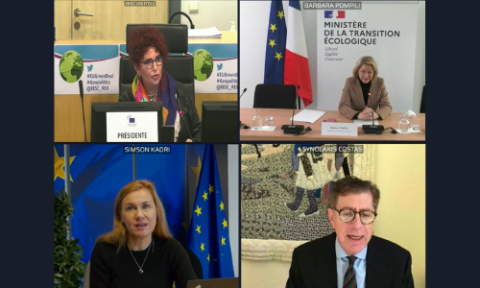European Economic
and Social Committee
Green transition not a scientific rhetoric but a question of survival
The Conference on the geopolitics of the Green Deal, held by the EESC together with the UN Sustainable Development Solutions Network (SDSN) on 6 December 2021, highlighted the wide-ranging geopolitical implications of the Green Deal, both for Europe and the world as a whole. The EESC is ready to play its part in this process, ensuring clear civil society ownership of the European Green Deal (EGD).
Almost 30 years after the UN Framework Convention on Climate Change, climate-damaging emissions have risen massively, according to the emissions gap report released in October 2021.
Christa Schweng, President of the EESC, emphasised: "This is why the green transition is a question of survival for both Europe and the world at large. Organised civil society can play a crucial role. We should not forget that a successful green transition first and foremost needs the support of our citizens."
Commissioner for Energy Kadri Simson added: "Our relations with our partners will change. Everyone must be on board if we are to solve the climate crisis. A new energy system will bring about new relationships."
Barbara Pompili, French Minister for the Ecological Transition, noted that the Green Deal and the green transition would dramatically affect international relations. Europe has to be as ambitious as possible in cutting emissions, protecting and restoring biodiversity and fighting pollution. Solidarity plays a vital role in securing the Green Deal and ensuring a truly just transition. The main focus should be on the green transition of the energy sector, and the EU's geopolitical actions should therefore help reduce the volatility of energy prices, while lowering the risks related to the promotion and expansion of clean energy use. Open strategic autonomy requires new value chains, where all developments must be accompanied by quality local jobs and returns for local communities. (at)
